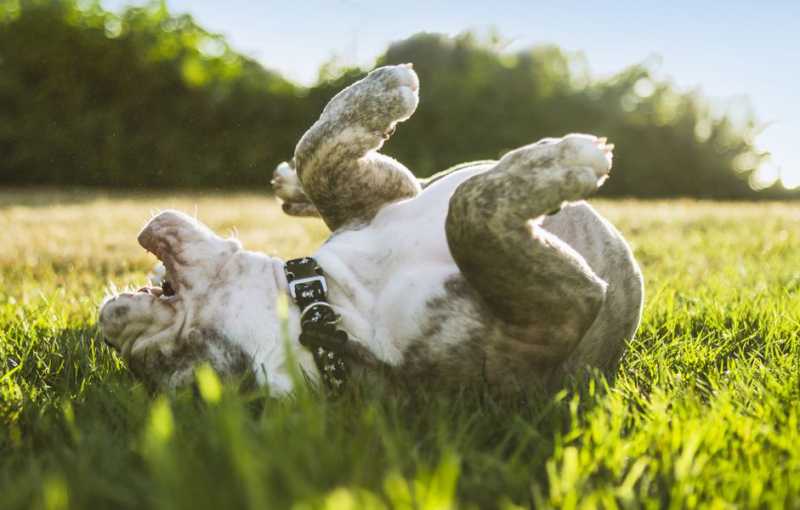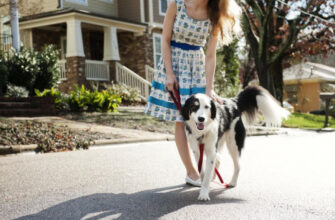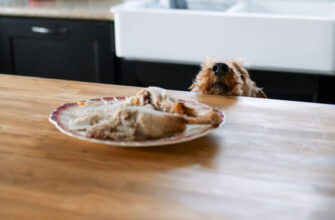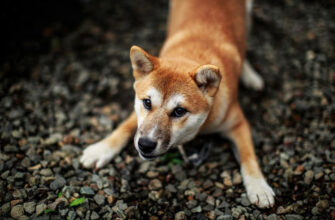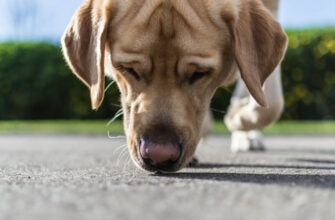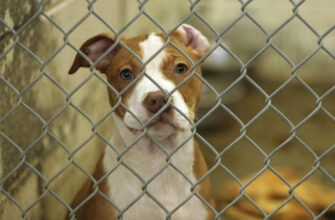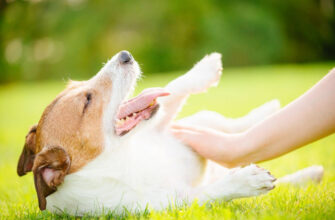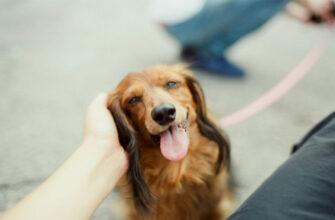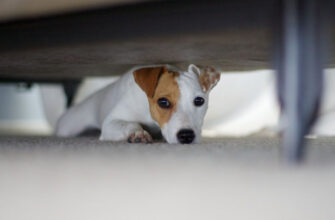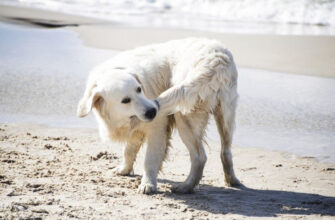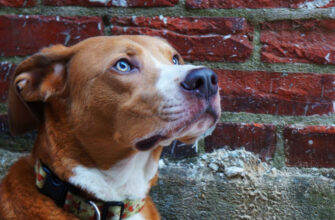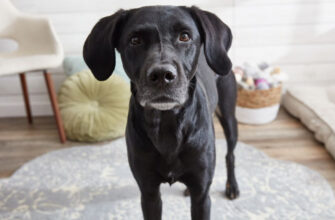Does your dog roll on its back in the grass a lot? Maybe it rolls around in smelly stuff out in the yard. Or what if your dog’s go-to move during puppy play is to expose their belly? A dog will roll on their back for a number of reasons. Some of them are simple behavioral cues and quirks but other instances could be a sign of something more.
Your Dog Has an Itch They Can’t Scratch
One of the most common reason for a dog rolling on their back is not as complex as you may first think. Believe it or not, dogs often roll on their backs to scratch themselves in places they just can’t get to otherwise. This can be a normal behavior, but if you’ve ever had a dog that has struggled with allergies, you know that dogs that are in the midst of an allergy flare up can get very itchy. They may scratch themselves so much that they develop a secondary bacterial skin infection. These skin infections can be painful, and spread rapidly, so if this happens to your poor pup, call your vet immediately.
There are medications that can help soothe your dog’s itchy skin and help correct any bacterial infection that may have taken hold. Even if your dog doesn’t have any signs of secondary skin infection, though, if they are itchy all the time that could be indicative of an allergy, be it environmental, food, flea, or other. Dogs manifest their allergies by way of itchy skin and paws, ear infections, and anal gland infections. If you are seeing your dog rolling on their back to scratch themselves constantly or if they are doing it in conjunction with chewing their paws, scratching their ears, or even scooting, they could be allergic to something in the environment or in their food.
Your vet can discuss ways of determining what your dog is allergic to and possible immunotherapy (most often in the form oral medications taken daily or injections given every few weeks). There are also medications available that can help block the itch cascade so that your pup doesn’t have to suffer with an itch that it just can’t scratch.
It Can Be a Non-Threatening Way of Saying Hello
It is well-understood that a dog rolling on its back and exposing its belly is a sign of submission. A way of saying, “Hey, please don’t hurt me, I mean you no harm.” Sometimes, if your pup is extremely timid, you may also see submissive peeing in conjunction with an exposed belly.
As with all non-verbal behavioral cues and body language, reading your dog as a whole—looking at other behavioral cues it may be giving in conjunction with an exposed belly, as well as being aware of what is going on in the environment—can give you some insight as to whether this is a true submissive back roll or not. If your dog is in a new environment and/or around new people or pets, especially if your dog isn’t very well socialized yet and still unsure of new people and new experiences, a roll on its back may be nothing more than a way to appear non-threatening.
Your dog may also flop on its back in the midst of healthy play with other dogs. In such instances, rolling on its back is a way of showing the other dog that the play is all in good fun. Veterinary professionals and pet owners are becoming more educated in pet behavior, body language, and how pets communicate with us and with each other. Reading up on canine body language, appropriate play, and healthy socialization skills are important tasks for any dog owner, but above all else is simply knowing your dog. The more you learn about different ways your dog communicates how they are feeling with you—how they behave when they are happy, scared, or upset—the more you can set your dog up for success in any situation.
Your Dog Wants to Mask Their Scent
What if you have a dog that thoroughly enjoys rolling around in dirty, foul smelling stuff outside? Your dog does not roll around in goose poop simply because it knows how much you hate it. Rather, dogs will routinely mask their own scent by rolling in items that are far more fragrant. It’s easier to try and stalk the geese at the park if you smell like them. Keeping your yard clean of anything malodorous that your dog may be obliged to roll in and keeping an eye on the path at the park can help keep your pup fresh and clean. Sometimes those public leash laws really are in your best interest.
Most of the reasons your dog will roll on its back, exposing its belly, are relatively benign. Sometimes they amount to nothing more than just a behavioral quirk. Of course, if it’s becoming a concern for you or if you fear there may be an allergy component to this behavior, consult your veterinarian. They will be able to suss out if there is a medical component to the rolling.
